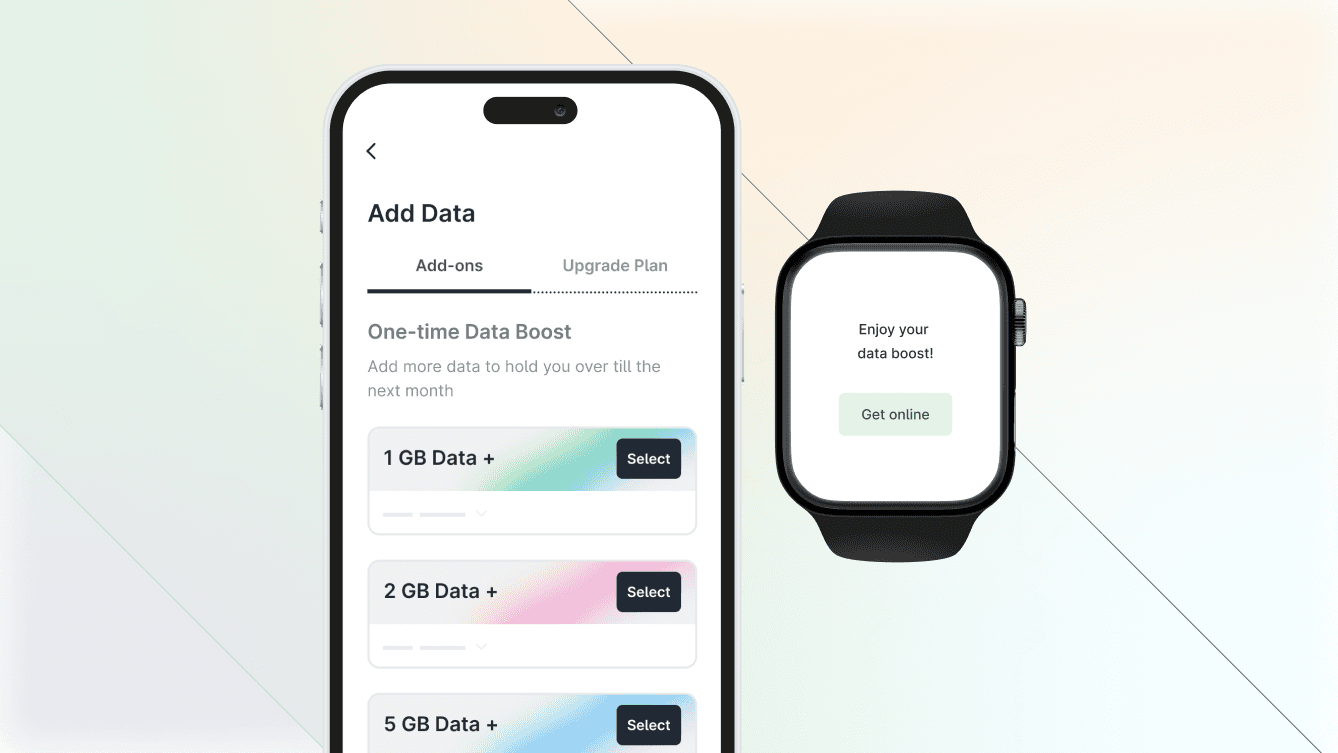Whether you're in the early stages of launching a mobile service or looking to optimize your existing operations, a robust telecom CRM is crucial to success. In this article, we’ll dive into the key functions and necessary features of a CRM in telecom. We’ll also explore how innovations in automation and AI can help you reduce operational expenditure, drive efficiency and deliver exceptional experiences to your customers.
What is CRM in telecom?
A telecom CRM is a specialized Customer Relationship Management tool tailored for mobile service providers. Unlike typical CRMs, telecom CRMs meet telecom-specific needs, which include the enablement of things like number porting, top-ups, upgrades and SIM provisioning.
Telecom CRMs also provide insight into customer behavior, data usage, renewals and churn. These insights are crucial for understanding your customers and optimizing your mobile service.
Key functions of a CRM for telecom
SIM and eSIM provisioning: Seamlessly manage activations, suspensions, and terminations, ensuring smooth onboarding and offboarding for customers.
Subscription management: Automate tasks like number porting, top-ups, and plan upgrades and notify customers of any changes to their mobile plan through automated messages. A self-service portal can also empower your users to manage their subscription independently, reducing support requests and enhancing efficiency.
Customer service: AI-driven features offer instant, personalized assistance, reducing operational costs while improving customer satisfaction.
Customer analytics: Capture data on payments, devices, usage, renewals, upgrades and churn. This insight can help you anticipate customer needs, identify opportunities for upselling and cross-selling, and optimize your conversion and retention rates.
Innovations in automation and AI
Recent advances in automation and AI have revolutionized telecom CRMs, allowing you to deliver exceptional customer experiences while reducing operating expenses. AI-powered tools can provide instant customer support, reducing workload and improving response times, while advanced automation streamlines the customer experience.
The growing popularity of eSIMs is also dramatically enhancing user experience (UX), enabling customers to sign up for a new mobile plan and activate their eSIM with a single tap. This simplified process removes much of the hassle of switching networks, opening up opportunities for new mobile service providers to capture customers from incumbents.
Avoiding operational fragmentation
Many telecom companies struggle with operational fragmentation when working with multiple vendors for CRM, telecom billing software, and network management. This can create a cycle of dependencies where fixing one issue causes compatibility problems elsewhere, stifling your agility and ability to innovate.
A unified, end-to-end platform, such as Gigs, can eliminate these inefficiencies.
By combining the building blocks of telecom in a single solution, end-to-end providers cut the cost and complexity of launching and running a mobile service, enabling companies to focus on their core business with enhanced agility and competitiveness.
What to look for in a telecom CRM
World-Class UX: Today, exceptional UX is non-negotiable. The best CRM systems will enable users to sign up easily, activate their eSIM in a tap, and manage things like top ups and upgrades from a user-friendly interface.
Synergized operations: To automate processes and reduce manual workload, telecom CRMs must integrate with other operational systems, such as checkout and billing. By working with an end-to-end platform that provides network integration, billing, compliance and CRM in one place, you can ensure synergy between each layer of your telecom service and vastly improve operational efficiency.
Automation and AI: Without the right automation tools, tasks like number porting, SIM provisioning, and customer support can quickly overwhelm your business. Leading telecom CRMs will automate these processes and streamline your operations. Additionally, AI-powered tools can drastically reduce customer service inquiries, helping you reduce contact rates and provide a smoother experience for your users.
Real-Time data management: A good CRM should handle vast amounts of real-time data, offering insights into activations, usage, payments, and churn in a user-friendly dashboard.
Flexible integration: It’s critical that your CRM integrates seamlessly with your platform. The ideal provider will offer a range of integration options, including no-code integration and swift API integration.
The Gigs advantage
A specialized telecom CRM is more than just a customer management tool; it’s the linchpin for delivering exceptional user experiences and driving growth. With the right CRM, you can streamline operations, reduce costs, and provide a superior experience that sets you apart in a competitive market.
By harmonizing all the building blocks of telecom—including wholesale connectivity, billing, compliance, and telecom CRM—in one platform, Gigs drastically simplifies the process of running a mobile service.
With market-leading conversion rates, advanced automation, and exceptional UX, Gigs equips you with the tools to succeed in the wireless market.
Get in touch with our team to learn more.




